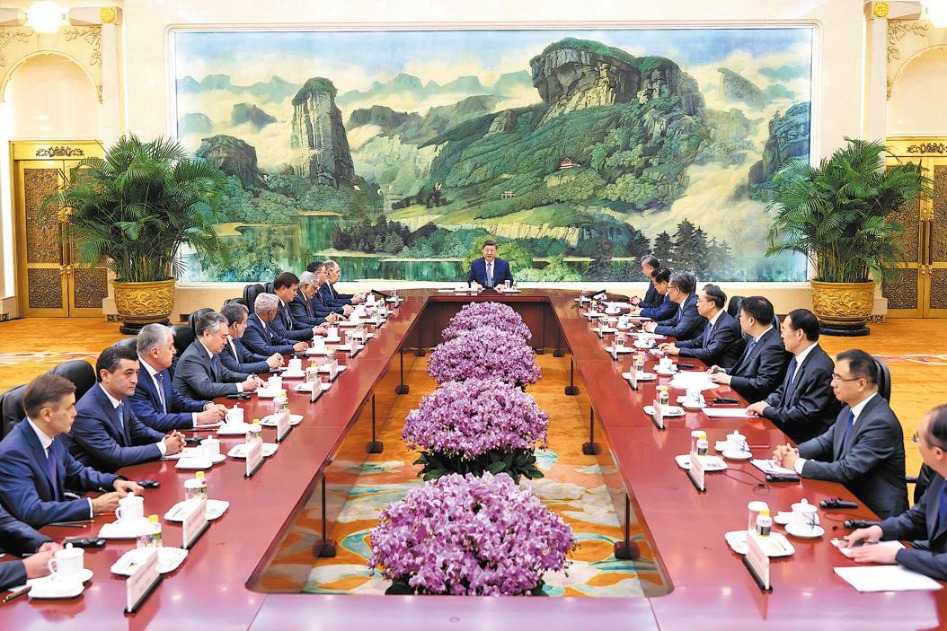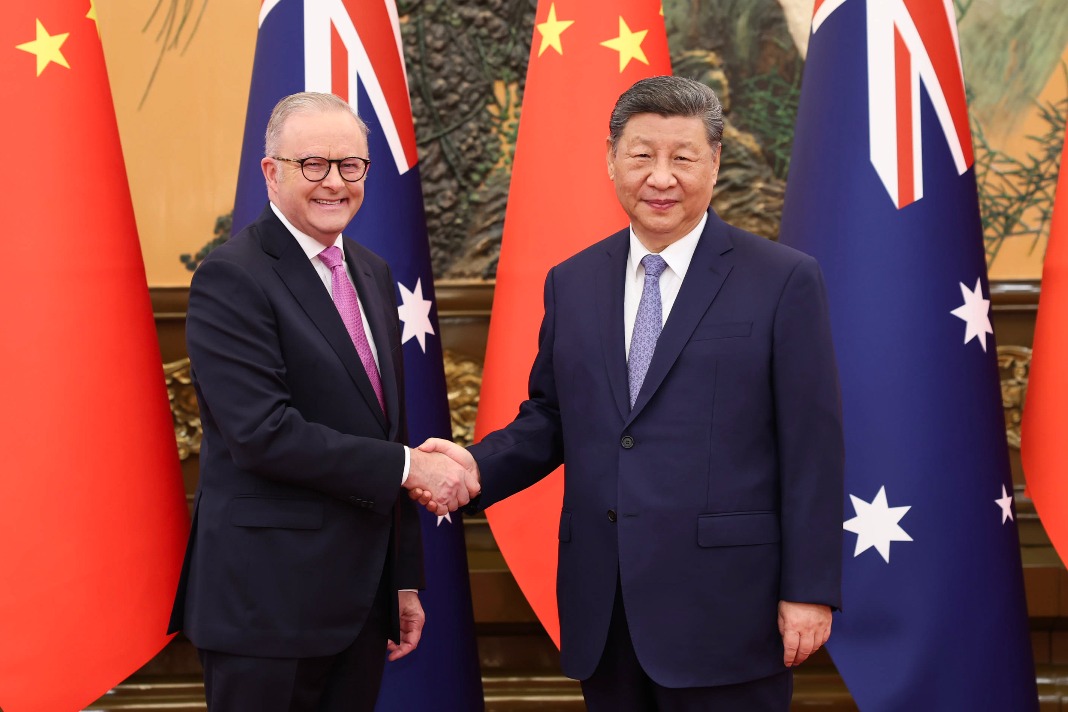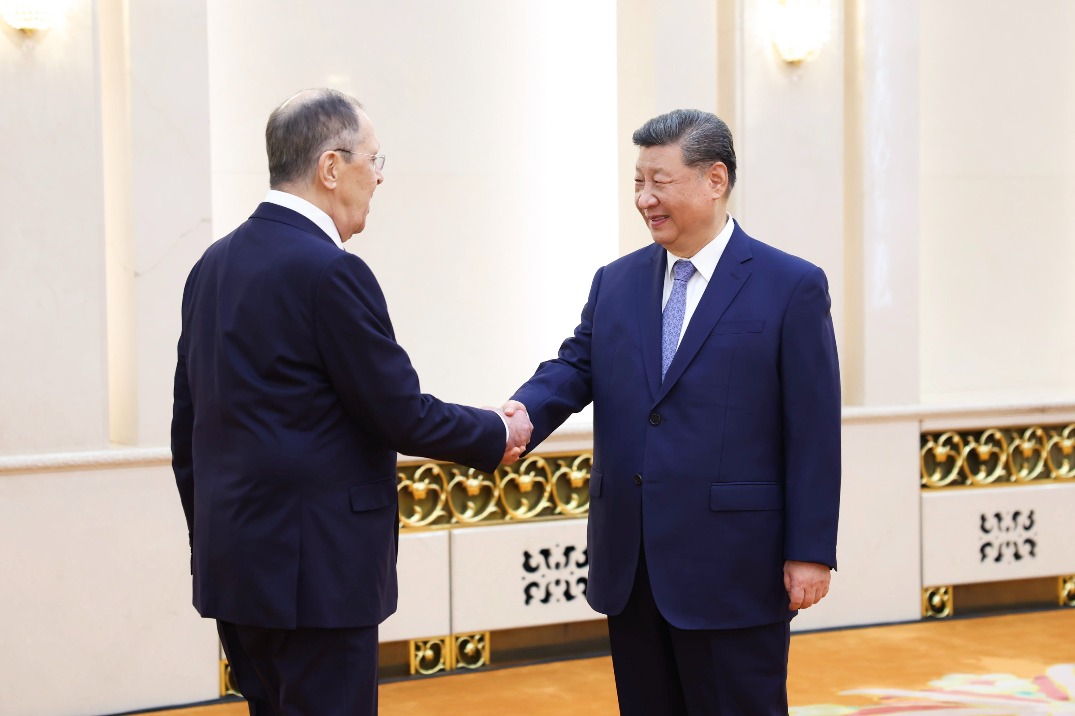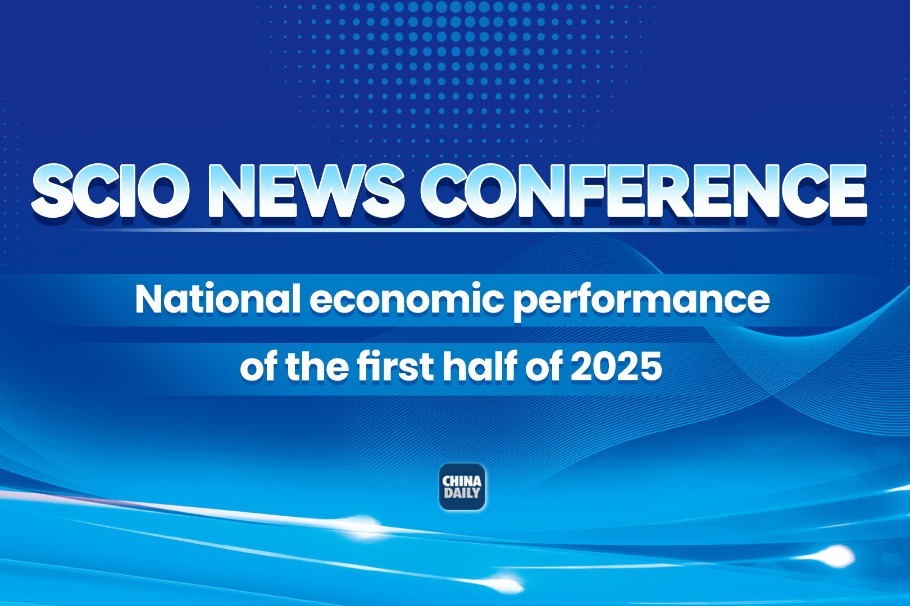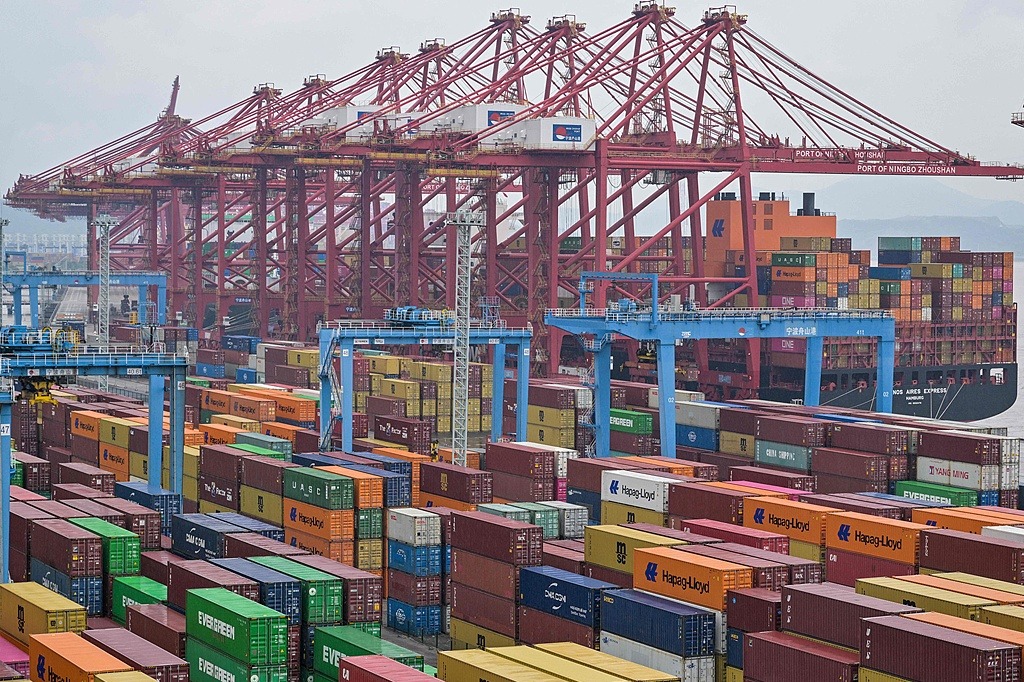IMF urges global effort to beat crisis
$1 trillion lending capacity at the ready, says its chief in advocating coordination

Close coordination and continuing contacts are the best medicines to help relieve global economic pain at a time when quarantines and social distancing have been prescribed to blunt COVID-19's public health impact, the chief of the International Monetary Fund, or IMF, said on Monday.
In a blog posting on the global lender's website, Managing Director Kristalina Georgieva said additional fiscal stimulus will be necessary to prevent long-lasting economic damage. She urged governments to continue to expand health spending and other efforts to reach the most-affected people and businesses. "Beyond these positive individual country actions, as the virus spreads, the case for a coordinated and synchronized global fiscal stimulus is becoming stronger by the hour," she said.
Georgieva suggested that coordinated fiscal action on the scale of the 2008-09 financial crisis may be necessary. Earlier, the global lender had predicted global economic growth to be below last year's level of 2.9 percent, which was already the slowest pace since the crisis.
During the global financial crisis, fiscal stimulus by the G20 amounted to about 2 percent of GDP, or more than $900 billion in today's money, in 2009 alone.
"So, there is a lot more work to do," Georgieva said.
The IMF stands ready to mobilize its $1 trillion lending capacity to help its 189 members, Georgieva said, adding that the fund has received interest from about 20 additional countries for financing programs and will follow up with them in the coming days.
In formulating a regulatory response, financial system supervisors should aim to maintain the balance between preserving financial stability, maintaining banking system soundness and sustaining economic activity, Georgieva said.
"This crisis will stress-test whether the changes made in the wake of the financial crisis will serve their purpose," she said.
All of the fiscal, monetary and regulatory actions would be "most effective when done cooperatively", the IMF chief said, adding that fund's research shows that spending increases have a multiplier effect when countries act together.
'All policy tools'
Also on Monday, the leaders of the G7 industrialized nations pledged to "use all policy tools" to forcefully address the economic impact of the novel coronavirus outbreak.
"While current challenges may require national emergency measures, we remain committed to the stability of the global economy," said the leaders of Canada, France, Germany, Italy, Japan, the United Kingdom and the United States in a joint statement.
Several researchers have advocated increased international cooperation to stem the epidemic.
Yuval Noah Harari, the historian and author of the best-selling Sapiens: A Brief History of Humankind, tweeted on Sunday: "The real antidote to epidemic is not segregation, but rather cooperation."
In an article published in Time magazine on Sunday, Harari said: "Today, China can teach countries all over the world many important lessons about coronavirus, but this demands a high level of international trust and cooperation.
"For one thing, international cooperation is needed for quarantine and lockdown, measures that are essential for stopping the spread of epidemics.
"But when countries distrust one another and each country feels that it is on its own, governments hesitate to take such drastic measures," Harari wrote. "If you think that other countries will then come to your help, you will be more likely to adopt this drastic measure."
Raghuram G. Rajan, a professor of finance at the University of Chicago Booth School of Business, said that if an effective treatment for coronavirus is not discovered soon, all countries will face a choice between walling themselves off entirely and pushing for a global effort to eradicate the virus.
"Given that the former is an impossibility, the latter seems the natural choice. But it would require a degree of global leadership and cooperation that is sorely lacking," the former governor of the Reserve Bank of India said in a Project Syndicate article on Friday.
In Beijing on Monday, a group leading China's epidemic response, chaired by Chinese Premier Li Keqiang, also called for intensified international cooperation on COVID-19 diagnosis and treatment methods.
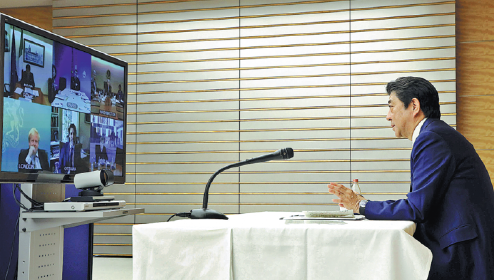
Today's Top News
- Economic growth momentum expected to continue
- Tianzhou 9 embarks on cargo mission to Tiangong
- SCO urged to play more active role
- Green, beautiful, livable cities call for modernized urbanization path
- Urban renewal beyond economic growth
- Xi meets Russian FM in Beijing
















